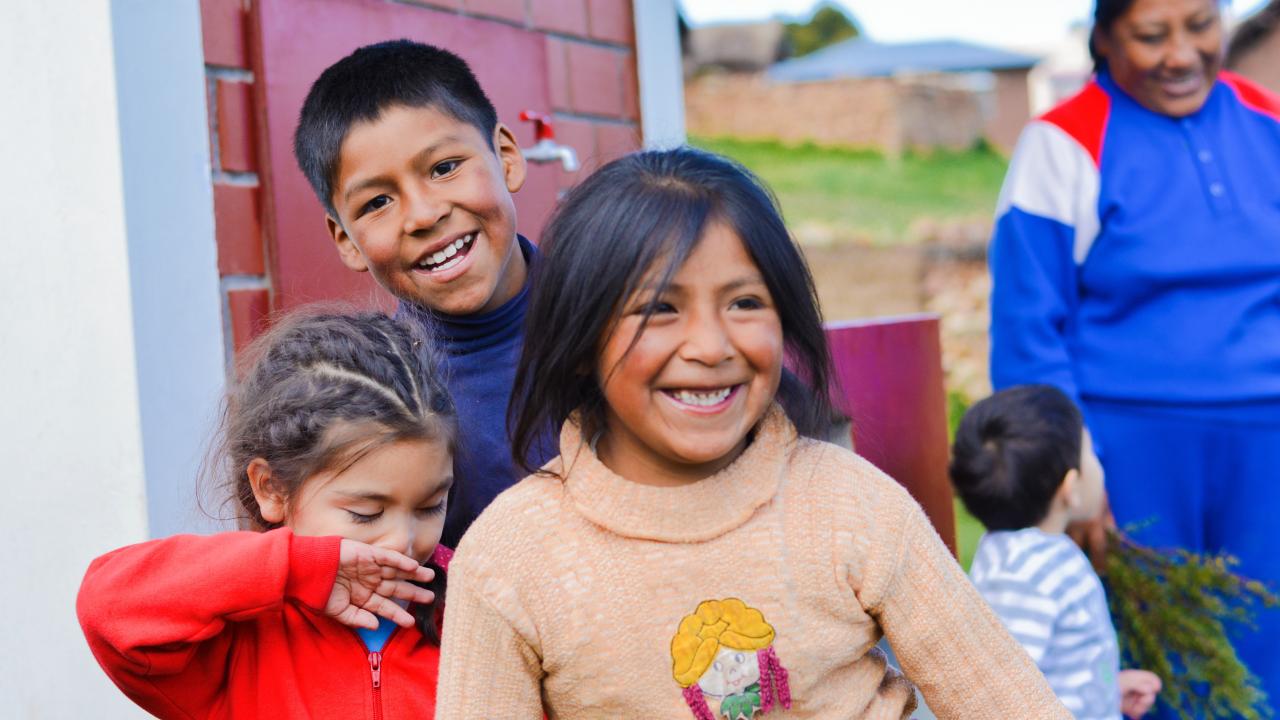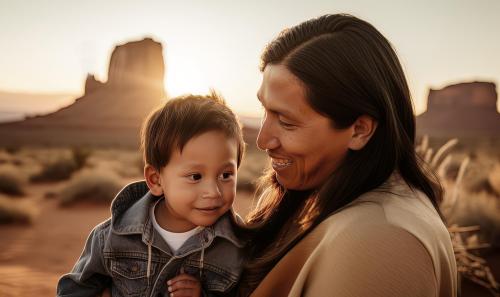
Kin-first Systems Spotlight: Indian Child Welfare Act is the Gold Standard for Family Finding, Engagement and Support
Introduced in 1978, the passage of the Federal and State Indian Child Welfare Acts (ICWA) marked a significant civil rights legislative achievement. Enacted as a remedial measure, the law sought to “recognize the essential tribal relations of Indian people and the cultural and social standards prevailing in Indian communities and families” [1]. The Act put pressure on the child welfare system to focus efforts on family preservation instead of family separation. Before the passage of the law, the child welfare system separated Indian children from their families at alarming rates – from 1960 through 1980, between 25-35 percent of Indian children were placed into foster care and lost contact with their Tribes and families [2].
California legislature has repeatedly declared there is no resource more vital to the continued existence and integrity of Indian tribes than their children, and the State has an interest in protecting Indian children in accordance with the Indian Child Welfare Act.
- 2017 ICWA Compliance Task Force Report
Since the passage, the rate of removals of Indian children have decreased; however, data reflects that Indian children still remain disproportionately represented in the child welfare system and separated from their Tribes and families (see data below). Child welfare has the responsibility to uphold the law – which is designed to stop the dismantling of Tribal families and Tribal colonization that began hundreds of years ago.
At the heart of the ICWA lies two fundamental recognitions: 1. Tribes are sovereign nations with inherent rights and decision making power and 2. Tribes and extended family are the experts in the lives of their children. To this end, the ICWA outlines active efforts, emphasizing that, in the event of child welfare intervention, Indian children are to remain living with and connected to their Tribe and family. Active efforts require prompt identification, notification and engagement to Tribes and the child’s tribal community, not only to preserve the Indian family, but also to prioritize cultural continuity.
Per ICWA, when it is deemed a child can no longer safely remain in the care of the parents or guardians, Indian children are to be placed in Tribally Approved Homes (TAHs), or at a minimum, in a home where the Tribe’s prevailing cultural and social standards are applied and approved by the child’s Tribe. Data around the placement of Indian children in TAHs is complicated by inaccurate and incomplete data, though it is estimated that about 40% of Tribal children are placed in a TAH [3]. The data is further complicated because some, not all of the TAHs, would be considered a relative placement.

By drilling down into the disproportionality data a little more, we can pinpoint areas for further investigation. When accounting for poverty, we can compare entries and placement rates for Indian children compared to white children. In 2022, Indian children were less likely to receive an allegation or child welfare investigation compared to white children (again, accounting for poverty). However, they were 1.3 times as likely to have a substantiation and 1.6 times as likely to enter foster care [3].
Family separation has an impact, and our new family story really emphasizes this. In this story, Harmony and her support network eloquently shed light on the complex emotional realities faced by families in child welfare. It also highlights the importance of the ICWA and provides firsthand accounts of the improved outcomes tribal families experience when the ICWA is followed.
Not only does family separation create hardships for the whole family, but it also increases the likelihood for youth to experience disparate health outcomes, such as greater mental illness, substance abuse, poverty, and a decrease in upward mobility and overall quality of life [2]. And, there is an immediate impact on the Tribe, which experiences this loss as continued colonization.
The Center for Excellence is dedicated to supporting compliance with the ICWA, and also champions the ICWA as the Gold Standard for child welfare best practice. The ICWA cements in legislation what we know to be true from the research - that children flourish most when surrounded by the embrace of their cultural heritage and familial ties. Going back to the data, we know that, similar to Indian children, Black children are actually less likely to have a child welfare allegation, compared to white children (also accounting for poverty), but are 1.3 times more likely to enter into the child welfare system and 1.7 times more likely to be placed in foster care [3].
In 1978 the passage of the Indian Child Welfare Act set a legal precedent to ensure Tribal sovereignty, combat colonization, and promote kinship-based care and cultural continuity. These principles of the ICWA align with Kin-first principles; the child's sense of connection, belonging and identity become a central focus, and the importance of family is highlighted. Kinship networks are far greater than just placement resources, they are irreplaceable and vital sources of stability, love and support. They hold inherent wisdom regarding their family’s history, needs and interests.
ICWA can serve as a blueprint for fostering healthier, more nurturing environments for children across diverse backgrounds, and be a guiding light for agencies looking to prioritize family preservation, kinship-based care and cultural and familial continuity. In upholding the mandates and principles of the ICWA, we honor not only Tribal Sovereignty but also the fundamental principles of justice, equity, and respect for cultural diversity that lie at the heart of a compassionate society.

Sources:
1. 25 U.S.C § 1901(5)
2. Daprile, Olivia. Bolstering the Indian Child Welfare Act. University of Chicago Crown Family School of Social Work, Policy and Practice. https://crownschool.uchicago.edu/student-life/advocates-forum/bolstering-indian-child-welfare-act#:~:text=The%20Indian%20Child%20Welfare%20Act%20(ICWA)%20of%201978%20was%20a,being%20removed%20from%20their%20communities.
3. Data Source: California Child Welfare Indicators Project (CCWIP), University of California at Berkeley California Department of Social Services, Research and Data Insights Branch
Announcements
Family Finding, Engagement and Support
Out of all 58 California counties, 23 have opted-in to the Excellence in Family Finding, Engagement and Support Program!
Family Stories
Visit our website for additional resources, information, and training opportunities.
Stay in the Loop
Join our mailing list to be notified as soon as new information becomes available
Spread the Word
If the information in this article looks like something one of your colleagues can benefit from accessing, please share along!
